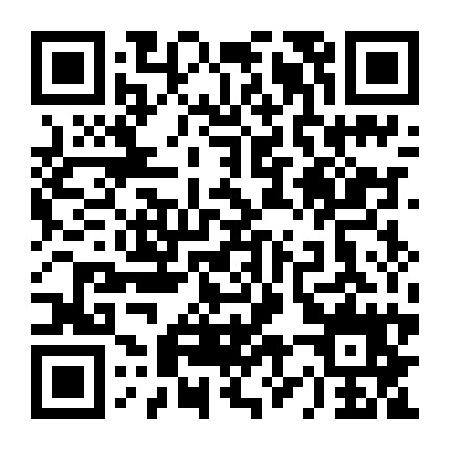2023年考博英语高频词汇总结4
考博复习备考中,查找一些具体的备考资料,对于大家来说也是比较耗时的事情。为了让大家更好的来备考考博考试,小编为大家整理了一些具体的考博复习资料。下面跟随小编一起来看看“2023年考博英语高频词汇总结4”吧!
12、acquire, attain,obtain, gain, earn, achieve, secure都有"获得,取得"的意思,在考研屡次出现。
acquire[kwai?] v.多指经过努力逐步获得才能、知识、习惯等,也可用于对财物等的获得,该词强调"一经获得就会长期持有"的含义。
It is through learning that theindividual acquires many habitual ways of reactingto situations.正是通过学习,个人才得以获得应付各种情况的习惯做法。
attain[tein] v.指经过不懈的努力获得未曾预料到的结果;也可指达到某一目标。
The salesperson attained his salesgoal for the month.这名销售员完成了当月的销售目标。
obtain[?b?tein] v.获得,买到,用于正式语体中。
He obtained the property with abank loan.他通过向银行贷款买下了那份房产。
gain[ɡein] v.指通过较大努力获得某种利益或好处;亦可指军事上的武力夺取等。
An investor gains by buying stocksthat go up in value.投资者通过所买股票价格上涨而得利润。
earn[?:n] v.挣得,赢得,指因工作等而得到报酬或待遇。
How much do you earn a week?你一星期挣多少钱?
achieve[t?i:v] v.得到,获得,多指成就、目标、幸福的取得。
The movie star achieved successand wealth.这个影星取得了成功和财富。
secure[si?kju?] v.得到;把……拿到手,含有肯定占有难以得到的东西之意;使安全,保卫;作形容词比较常见,意为"安全的"。
A million signatures have beensecured.已征集到了100万人的签名。
He secured the office beforeleaving it for the night.他晚上离开前锁好了办公室的门窗。
13、acute, critical,crucial, urgent"严重的,重要的"意思。
acute[kju:t] a.剧烈的,严重的;急性的(病)。
An acute lack of food broughthunger to the Iraqi people.食品严重缺乏,伊拉克人民正在忍饥挨饿。
critical[?kritik?l] a.意为"关键的",表示处于极度缺乏的状态或事件的转折点,与crucial相似。与crucial的区别在于它对缺乏的或危急的程度有更准确的衡量;还指"批判性的,分析性的"。
It is critical that you study hardfor the exam or you will fail it.为了考好你必须用功学习,则你会不及格的。
crucial[?kru:l] a.意为"决定性的,紧要关头的,至关重要的",最为笼统,适用于上述两种情况。
Improved consumer confidence is crucial to aneconomicrecovery.消费者信心的增强对经济的复苏是至关重要的。
urgent[:dnt] a.意为"紧迫的,急迫的,紧要的",它不强调所指的问题是最重要的,仅强调"紧急的"状态。
We have an urgent need for help;we are running out of water.我们急需要帮助,我们的水就快要用光了。
14、adjust,regulate, rectify, amend, convert, alter, modify,transform, vary都含有"调整、改变"的意思。
adjust[dst] v.一般指很小的改变或技术性的调整;修理。
I adjusted the air conditioner tostay cool.我调节了空调以保持凉爽。
regulate[?reɡjuleit] v.指根据规定或需要对某物(机器、钟表等)进行调整或调节,使之准确工作或运行;多含有"控制"之意。
Lights are used to regulate the traffic.红绿灯被用来管制交通。
rectify[?rektifai] v.纠正,校正(错误、文章、合同等)。
He rectified the mistake in thecontract by changing its wording.他通过改变措辞纠正了合同里的错误。
amend[mend] v. (正式用语)指修改文件、法律、规范等。
The politicians amended the law toprovide more jobs.政治家们修正了这项法律以提供更多的就业。
convert[k?n?v?:t] v.改变某事物的形式或用途,还可以指改变信仰尤其是宗教信仰。
Britain converted to a decimalcurrency system in 1971.英国于1971年改用十进制货币体系。
He's converted to Catholicism.他已经皈依天主教。
alter[:lt?] v.使事物在外观、性质、用途等方面稍作改变。
The tailor altered the waistbandon my pants because it was too tight.裁缝修改了我的裤腰因为它太紧了。
modify[?m?difai] v.改变,修改,以使某物更趋完善,还可以用来表示态度、脾气、意见变得温和。
He was loud and angry, and hisfriends told him to modify his behavior.他粗声大气,脾气暴躁;朋友们告诉他要改变自己的举止。
transform[tr?ns?f?:m] v.指彻底、深远的改变,这种变化完全改变了外观或特性,使被改变的对象脱胎换骨。
Remodeling transformed an old,dark house into a cheerful one.重新装修使这所陈旧昏暗的房子变得赏心悦目。
vary[?vri] v.强调没有一定规则、陆续的变化或差异。
Air fares vary from one airline toanother.航空公司的机票价格各不相同。
15、admit, confess,concede这几个动词都有"承认"的意思。
admit[?d?mit] v.指由于说服、再三追问而"承认"某一事实或过错。
I admit that you have a point.我承认你有理。
confess[k?n?fes] v.供认(罪行、过错等),含有"坦白、招认"的意思。
He confessed his crimes to the judge.他向法官供认了他的罪行。
concede[k?n?si:d] v.指曾想隐瞒或不愿意承认某一错误,但由于证据确凿而不得不勉强承认,还可以指"以退为进"的承认。
The man who caused the accidentfinally conceded to the police that he had done it.造成这次交通事故的人最终向警察承认他是肇事人。
16、affiliate, link,attach, append都有"附加"的意思。
affiliate[filieit] v.加入,成为……一部分。
an affiliated middle school一所附属中学
link[li?k] v.将人或物连接起来。
The crowd linked arms to form abarrier.群众臂挽着臂组成人墙。
attach[t?t?] v.将某物系在、贴在、附在另一物上。
I attached a note to my reportwith a paper clip.我用别针将一张字条别在报告的后面。
append[pend] v.增加,附加(与attach的意思比较接近)。
The lawyer appended two more pagesto the contract.律师在合同后又附加了两页。
17、affirm, assert,allege, claim, announce, proclaim
这一组动词都有"声称"的意思。
affirm[f?:m] v.坚信不疑地肯定或宣称,是deny的反义词。
He affirmed his love for her.他发誓爱她。
assert[s?:t] v.指不管事实如何,主观自信地宣称,或者清楚有力地坚持某个情况为事实。
She asserted that she was innocent .她宣称自己是无辜的。
allege[led?] v.在无真凭实据的情况下宣称、断定。
The suspect alleged that he hadnot been in theneighborhood at the time of the crime.嫌疑犯声称案发时他不在现场。
claim[kleim] v.要求,声称,断言。多指根据某种规定提出的要求或主张。
They claim that if more peoplerode bicycles to go to work there would befewer automobiles in the downtown section ofthe city.他们生成如果有更多的人骑自行车上班的话,闹市区的汽车就会有所减少。
announce[nauns] v.宣布,宣告。多指首次当众正式宣布某一主张或态度,常常带有预告的意味。
The invention of the printing press announced the diffusion of knowledge.印刷术的发明宣告了知识普及时代的来临。
proclaim[prkleim] v.宣布;宣告(成立)。指经过深思熟虑后向大众宣布一个明确的决定或判断,尤其指重大事件的宣布,多用于官方场合。
The president proclaimed anemergency when the war came.当战争来临的时候总统宣布进入紧急状态。
18、aggravate,reinforce, increase, strengthen, intensify 这一组动词都有"加强"的意思。
aggravate [ɡr?veit] v.加重(负担、罪行、病情等),使之恶化。
I hurt my foot, then aggravated itby trying to walk too soon.我的脚受伤了,而过早的下地走路又加重了伤情。
reinforce[?ri:?n?f?:s] v.增援,一般用于军队或警察的行动;(添材料等)加固。
A police officer saw three thievesrobbing a bank and radioed to reinforce him.一位警察看到三个盗贼抢劫银行,用无线电话要求增援。
increase[in?kri:s] v.指数量上的增加。
The number of people has beenincreased.人数增加了。
strengthen[?stre?θn] v.加强,巩固,增强,相当于to becomestronger。
Exercising every day strengthensthe heart.每天锻炼可以提高心脏的功能。
Competition, they believe,strengthens the national character ratherthan corrupt it.人们认为竞争加强了民族性而不是破坏了它。
intensify[in?tensifai] v.使变得更强烈、剧烈,加剧,相当于to becomemore intense or intensive。
intensify colors加深色彩intensify hatred加深仇恨
19、alert, cautious,considerate都表示"小心的,谨慎的"。
alert[l?:t] a.警惕的,留神的。
The hostess remained standing,alert to every guests' drinking need.女主人一直站在旁边,时刻准备给大家斟酒。
cautious[?k?:s] a.细心的,谨慎的。
He has a cautious attitude aboutspending money.在花钱的问题上他态度谨慎。
considerate[k?n?sid?rit] a.关心他人的,体贴的。
He is always considerate ofothers; he is kind and sympathetic.他总是很体谅他人,并且慈祥而富有同情心。
20、alive, live,living, lively 这一组形容词都跟"活"有关。
alive[laiv] a.活着的,有活力的,常作表语,作定语时必须后置。
After the accident, he was barelyalive.交通事故后,他奄奄一息。 allman alive所有活着的人
live[liv] a.活的,有活力的,现场直播的,
We watched the live broadcast ofthe opera on TV.我们通过电视观看了这部歌剧的实况。
living[?livi?] a.活着的,作定语可前可后,可修饰人也可修饰物。
Who is the world's greatest livingartist?谁是现在还健在的世界上最伟大的艺术家? livingroom起居室
lively[?laivli] a.活泼的,栩栩如生的。
She is a lively young girl, alwayslaughing and doing things.她是个活泼可爱的小姑娘,总是欢声笑语忙个不停。
以上就是关于“2023年考博英语高频词汇总结4”的相关内容,更多考博复习资料,请关注本频道的持续更新!
考博必备!历年真题及答案
考博精品好课,就选新东方!

 资料下载
资料下载
【必看】考博英语词汇10000例精解
发布时间:2020-09-02关注新东方在线服务号
回复【10000】免费获取
医学考博英语作文核心基础词汇整理
发布时间:2020-04-15关注新东方在线服务号
回复【医学考博】获取
医学考博英语阅读理解练习资料
发布时间:2020-04-15关注新东方在线服务号
回复【医学考博】获取
法学考博英语高频词汇word版
发布时间:2020-04-15关注新东方在线服务号
回复【医学考博】获取
医学博士英语统考真题及解析
发布时间:2019-12-26关注新东方在线服务号
回复【考博真题】获取
全国医学博士外语统一考试真题
发布时间:2019-12-26关注新东方在线服务号
回复【考博真题】获取
中科院考博英语复习备考实战经验分享
发布时间:2019-12-26关注新东方在线服务号
回复【考博经验】获取
中科院考博英语真题练习资料
发布时间:2019-12-26关注新东方在线服务号
回复【考博真题】获取

关注新东方在线服务号
关注新东方在线服务号,
免费获取考博必看干货资料

 推荐阅读
推荐阅读
随着2025年考博接近尾声,2026年新一轮的备考也悄然拉开帷幕。还有很多学生会不明晰考博什么时候准备最好?该怎么做时间规划?需要准备多久
很多同学是第一次备考博士,英语不知如何下手。因此小编整理了2026年医学考博英语备考攻略,希望在大家备考时有帮助。一、2026年医学考博英
来源 : 网络 2025-05-12 16:45:48 关键字 : 医学考博英语
考博英语复习备考中,查找一些具体的备考资料,对于大家来说也是比较耗时的事情。为了让大家更好的来备考考博考试,小编为大家整理了一
来源 : 网络 2025-05-08 18:17:56 关键字 : 考博英语句型模板
考博英语复习备考中,查找一些具体的备考资料,对于大家来说也是比较耗时的事情。为了让大家更好的来备考考博考试,小编为大家整理了一
来源 : 网络 2025-05-08 18:17:32 关键字 : 考博英语句型模板
考博英语复习备考中,查找一些具体的备考资料,对于大家来说也是比较耗时的事情。为了让大家更好的来备考考博考试,小编为大家整理了一
来源 : 网络 2025-05-08 18:17:13 关键字 : 考博英语句型模板


 考博好课推荐
考博好课推荐
基础薄弱,备考迷茫,送纸质资料
价格 : ¥2280元
资深教师,教学简明,直接有效!
价格 : 0元
 资料下载
资料下载
关注新东方在线服务号
回复【10000】免费获取
关注新东方在线服务号
回复【医学考博】获取
关注新东方在线服务号
回复【医学考博】获取
关注新东方在线服务号
回复【医学考博】获取
关注新东方在线服务号
回复【考博真题】获取
关注新东方在线服务号
回复【考博真题】获取
关注新东方在线服务号
回复【考博经验】获取
关注新东方在线服务号
回复【考博真题】获取

 阅读排行榜
阅读排行榜
 相关内容
相关内容